Editor's note
|
|
The cyclone that has caused havoc on Africa’s east coast has brought home two very tough realities. First, as Jennifer Fitchett notes, storms are growing in intensity and frequency. And that is exacerbated – as Robert Šakić Trogrlić writes – when countries such as Malawi and its neighbours lack the early warning systems that could protect their citizens from ferocious storms.
Tomorrow is World TB Day – the day in 1882 that Robert Koch announced he had discovered the bacterium that causes TB. Nearly 150 years later TB still kills at an alarming rate, even though there have been some important breakthroughs as scientists continue to try and find better drug regimens. Andrew Nunn and I.D Rusen share important findings from their recently published research on improving the treatment of drug resistant-TB. With an eye on some of the biggest breakthroughs, Bavesh Kana, looks at other developments made on the prevention and treatment front. And finally, Nazir Ismail debunks the myth that the disease only affects the lungs.
|
Nontobeko Mtshali
Education Editor
|

|
|
Top stories
|
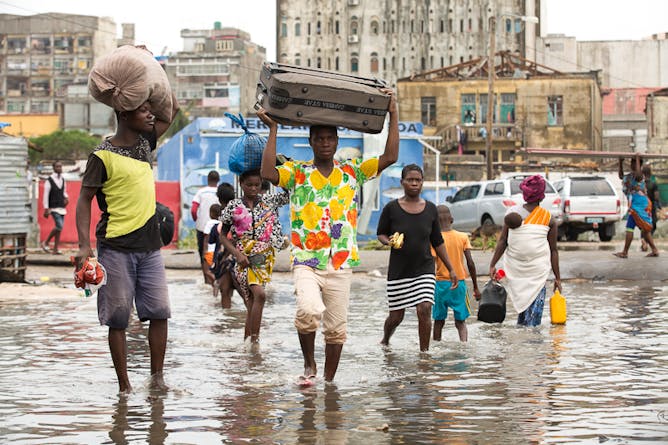
People leaving their homes in the flooded section of Praia Nova, Beira, Mozambique in the wake of tropical cyclone Idai.
Denis Onyodi/ IFRC handout
Jennifer Fitchett, University of the Witwatersrand
The recent storms provide a grim reminder of the prospect of future tropical cyclones in a region under continued threat from climate change.
|
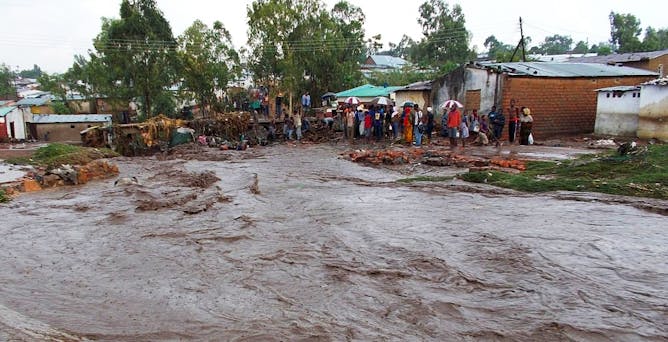
Torrential rains in Malawi have caused dozens of deaths.
Arjan van de Merwe/UNDP/Flickr
Robert Šakić Trogrlić, Heriot-Watt University
High poverty levels mean people lack access to land and work and they are often driven to settle in zones that are exposed to natural hazards.
|

TB, which is caused by the bacterium Mycobacterium Tuberculosis, is a leading cause of death.
Kateryna Kon/Shutterstock
Bavesh Kana, University of the Witwatersrand
In Southern Africa, high rates of HIV infection have been the primary driver of TB
|
Health + Medicine
|
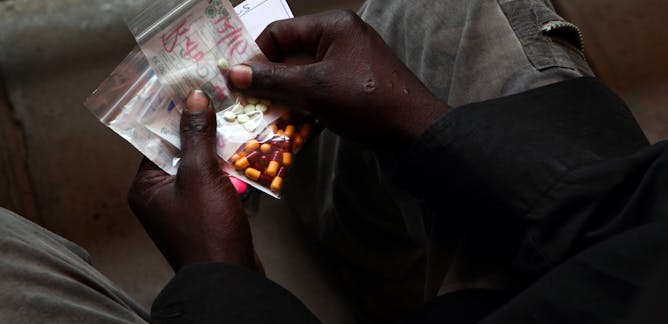
Andrew Nunn, UCL; I.D. Rusen, University of Toronto
New research shows that the treatment of drug resistant-TB can be reduced from the current duration of 20 to 24 months to less than a year.
| |

Nazir Ismail, National Institute for Communicable Diseases
TB outside the lungs accounted for 14% of TB cases recorded globally in 2017.
|
|
|
Politics + Society
|

Andrew Novak, George Mason University
Botswana's High Court could finally decriminalise same-sex relations.
| |

Tawana Kupe, University of Pretoria
Science is not the absolute truth. Scientific findings are the beginning, not the end, of the quest for truth.
|
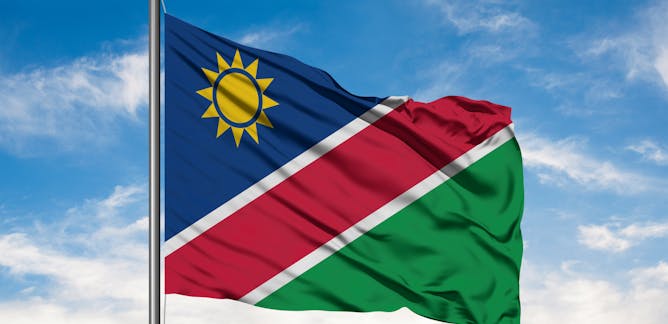
Henning Melber, University of Pretoria
Swapo remains the dominant party by far in Namibia. But it seems increasingly unable to live up to its promises.
| |

Pau Baizán, Universitat Pompeu Fabra
A crucial resource in enabling migration is having some personal link to current migrants.
|
|
|
Environment + Energy
|

Ross Harvey, South African Institute of International Affairs
While the international conservation community unites against the captive breeding of big cats in South Africa, the government stalls.
| |
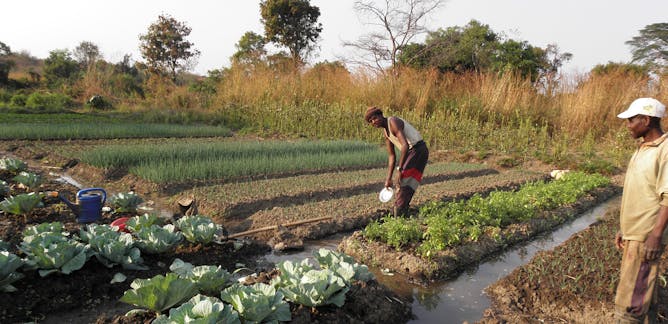
Ian Scoones, University of Sussex
The green revolution: small-scale, informal irrigation is expanding in Zimbabwe and small scale farmers are leading the way.
|
|
|
Business + Economy
|
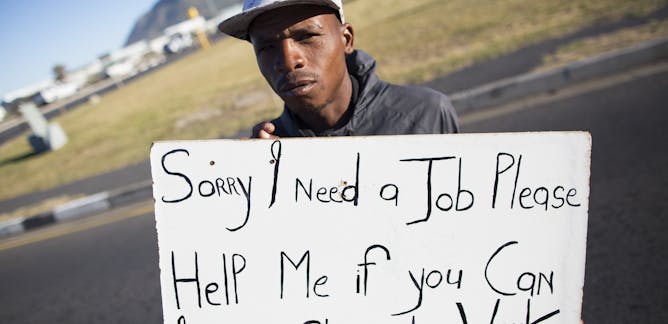
Leila Patel, University of Johannesburg
A national minimum wage could benefit young people who have jobs and stimulate those who have given up trying to find work. But those without work need additional help.
| |
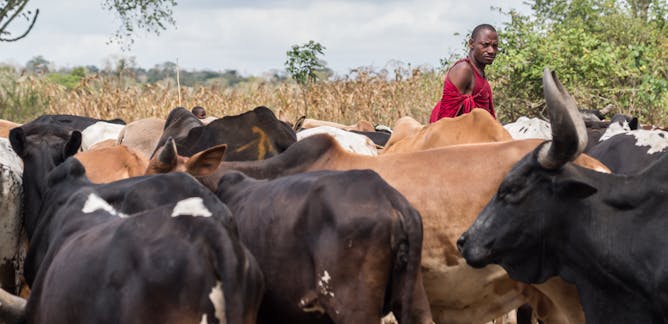
Ashley Railey, Washington State University
Foot-and-mouth disease vaccines have been successful in several parts of the world. But in Tanzania it’s not that easy.
|
|
|
Education
|

Amanda Mphahlele, University of Johannesburg; Sioux McKenna, Rhodes University
These programmes allow institutions to claim they're doing something without really tackling the issues that lead students to plagiarise.
| |
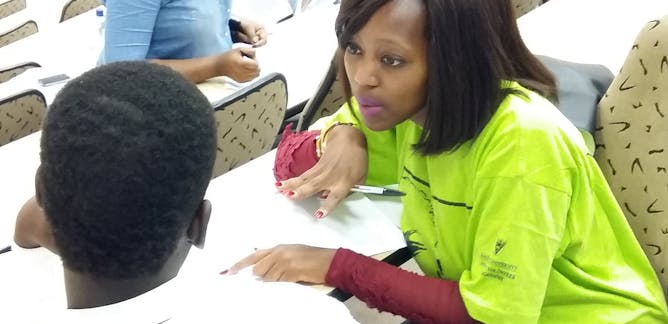
Di Wilmot, Rhodes University
Universities have both a responsibility and a degree of potential influence on public schooling that set them apart and impose a special duty of leadership.
|
|
|
Arts + Culture
|

Mohammed Girma, University of Pretoria
Ethiopia is a storytelling nation in which Emperor Tewodros has a special place.
| |

Pier Paolo Frassinelli, University of Johannesburg
Fespaco, Africa's premier film festival, celebrated its 50th anniversary in Burkina Faso. For African cinema to survive, it must adapt to today's audiences and forms of distraction.
|
|
|
| |
| |
| |
| |
Would you like to republish any of these articles?
|
|
It’s free to republish, here are the guidelines.
Contact us on africa-republish@theconversation.com in case you need assistance.
|
| |
| |
| |
| |
|
|